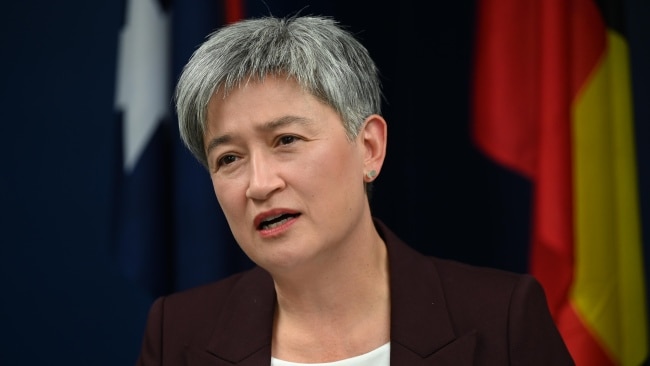What won’t work is more of the same, said Foreign relations Minister Penny Wong as she pushed the Liberal Party to look past the Voice’s skepticism and abandon years of unsuccessful Indigenous relations policy.
Senator Wong said it was crucial to keep in mind that “a great many” Australians wanted to ensure constitutional recognition for Indigenous peoples regardless of “issues of detail” in response to Liberal MP Julian Leeser’s resignation from his shadow ministry.
She continued by saying that the administration was dedicated to following the legislative “process” and that they were eager to speak with Mr. Leeser, but she ruled out changing the Voice’s original plans to interact with the executive branch of government rather than with the legislature as a whole.
She asked, “Can I explain why we want executive government and why Indigenous leaders and First Nations leaders want executive government.
If we agree that this is about ensuring that people have a say in matters that concern them, then if we look back at our history, a large portion of what we now consider to be the wrong decisions that governments made in relation to First Nations peoples and communities were made by executive government.
You can see why First Nations communities and leaders are stating that they want to be able to participate in the executive branch of government.
The senator emphasized that the working group will “engage with that issue” and that it would be up to the Parliament to decide how that would operate.
Senator Wong should address the possibility that the Voice won’t significantly improve the daily lives of Australian Indigenous peoples in its current form.
Senator Wong was determined that something needed to happen while acknowledging decades of ineffective government policy towards Indigenous issues.
More of the same, as we already know, won’t work, she said.
That is the point, right?
“We had hundreds of people from all over the nation involved in the Statement from the Heart’s development and expression, and what we do know is that we need to change in order to achieve the kinds of results that we all desire.”
However, she stressed that the Voice represented “progress” and that the benefits would be “much more likely” if more Australians participated in engaging with it. She acknowledged that the government was not seeking “perfection.”
Her comments are unlikely to have any impact on Opposition Leader Peter Dutton, who has repeatedly urged the government to release more information on how the Voice would actually work, arguing that Australians should have a thorough understanding of the plan before it is put to a referendum.
The Liberals confirmed their opposition to the Voice following a party-room meeting last week, and the frontbench is now required to vote against the legislation in Parliament.
As a result, Mr. Leeser made the decision to resign, stating his desire to support a Voice despite his personal reservations over the reforms being implemented by the Albanese government.
The Liberal Party permits backbenchers to vote independently of the party line and according to their own convictions.





